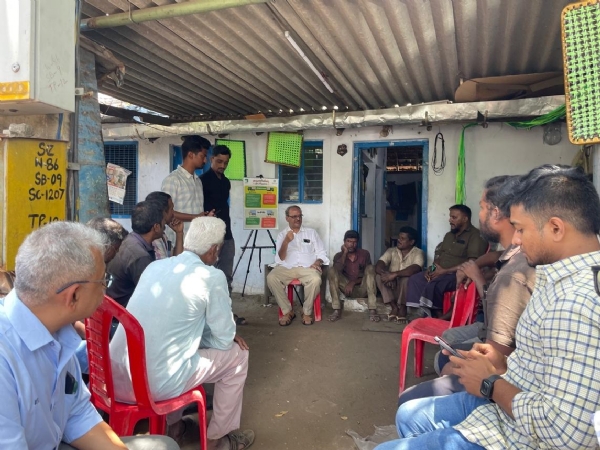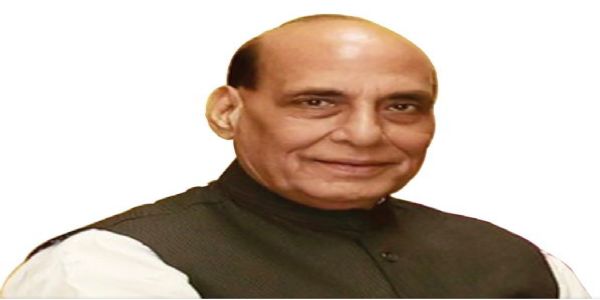
Lucknow,
15 Oct (HS): Electric vehicles produce no pollution and have reduced
running expenses. As the technology
evolves, user feedback is included, and advancements will continue. Electric trucks are expected to follow suit
as electric cars and bikes become more prevalent. With India's fast expansion, e-trucks will
play a critical role in reducing dependency on imported fuel,” Selvasundaram, a suspension specialist
working in a Bengaluru workshop, made this comment at one of the hundred
awareness sessions hosted by the Nayi Soch Ki Sawaari project, rather than a
government spokesman or an industry expert.
Selvasundaram
isn't alone. Before we began this program, a dipstick poll revealed that just
16% of fleet operators believed electric vehicles might be a viable alternative
to regular diesel trucks. This figure has now risen to 68%, according to our
field survey. These are not simply statistics. According to Kritica Mahajan,
Project Lead at Nayi Sock Ki Sawaari, there are stories of individuals who are
eager to contribute to the solution if given the proper assistance.
India is boosting up efforts to advance zero-emission transportation using a
combination of incentives, infrastructure, and legislative frameworks. Landmark
programs such as PM E-DRIVE, Production Linked Incentives, policy advice for
financing models, scaling-up charging infrastructure, and safety standards
herald a shift that would position India to decarbonize, increase energy
security, and establish worldwide leadership in clean transportation solutions.
Yet,
the people most impacted by this transition are often the last ones to be
involved in the conversation. Often the drivers, mechanics and fleet operators,
the very community that keeps the country’s freight system running, remain
uninformed and unengaged. This gap not only slows down adoption but risks
leaving those who have the most at stake in this shift vulnerable to
misinformation. With 100 awareness sessions in 28 cities across 8 states, Nayi
Soch Ki Sawaari (NSKS), is bridging this gap and taking this transition to a
complex mosaic of drivers, mechanics and fleet operators operating across
formal and informal players in multiple states. Anchored by the Centre of
Excellence for Zero Emission Trucking (CoEZET) at IIT Madras, the initiative is
part of a broader effort that includes policy support, skill development, and
standard-setting to ensure that India’s transition to zero-emission trucking is
not only ambitious but also inclusive and just.
On
the value of engaging the community directly, Ajithkumar TK, CEO CoEZET says,
Policy becomes real only when it meets the people. We at CoEZET want to
make sure that the trucking community is no longer on the sidelines of the
clean freight transition. We have installed a three-step communication process
– “Awareness, Acceptance, Adoption” to reach-out to “User layers”, the most
important stakeholders in the trucking ecosystem. This first step is to make
these stakeholders to be “aware” of the different aspects of truck
electrification - the trends, advantages, challenges and technologies. The idea
is to build a strong relationship based on trust. Once that relationship is in
place, we plan to engage with them to help them “accept” the electrification
journey - appreciating the benefits that accrue to them as well as the country
and world at large. Finally, we will help them “adopt” truck electrification
with the right tools, training and preparations. There are many people who are
working with different Stakeholders for Truck Electrification - CoEZET is engaging
with this mostly neglected community that is going to be most critical in the
adoption of e-trucks.” With the right information and support drivers,
mechanics, and fleet operators can be the champions that help accelerate this
transition from the ground up.
To
put truckers at the heart of the clean freight conversation, NSKS collaborated
with experts to bring information to life using jargon-free regional languages,
accessible and easy-to-understand formats like games, videos, informal
conversations, and radio shows. This not only helped tackle questions but also
create a space where challenges could be explored openly, making these
conversations feel both real and achievable.
While
fleet operators express cautious optimism, due to concerns around upfront
costs, charging infrastructure, range limitations, and uncertain demand,
drivers are embracing the shift with enthusiasm. According to the NSKS field
survey, 85% of driver participants were eager to try electric trucks, driven
not just by the ease and comfort of operating them, but also by a strong desire
to contribute to a cleaner future for their children. Nearly all attendees
(96%) recognized the environmental benefits of electric trucks, underscoring a
growing awareness and willingness to be part of the transition.
For
every 1000 trucks in India, there are only 750 drivers- and decreasing.
Meanwhile, the number of trucks in the logistics industry is projected to
quadruple by 2050. In such a scenario, community centric initiatives like Nayi
Soch Ki Sawaari are crucial not only to propel India’s electrification journey
and achieve its ambitious policy goals, but also to scaffold driver retention
and attract talent in this industry that is the logistics lifeline of India
Inc..
Nayi
Soch Ki Sawaari is an initiative that is taking trending conversations about
electrification of Medium & Heavy-Duty Trucks beyond decision makers to the
end users. We are working directly with the trucking community, including
drivers, fleet operators and mechanics, on highways and transport hubs, across
18 states and 75 districts to build a truly inclusive vision for a prosperous
future with them. The initiative has been conceptualised by Centre of
Excellence for Zero Emission Trucking (CoEZET), IIT Madras and rolled out by
Purpose with on-ground support from Child Survival India under the aegis of
e-FAST.
Hindusthan Samachar / Abhishek Awasthi








